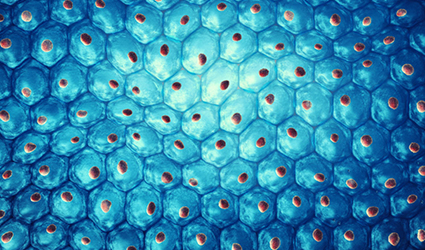Satellite Cells to Repair Muscle Pain
June 15, 2018
Source: MedicalXpress
 791
791

Nowadays, it is common to see people with constant muscle pain, due to improper exercise or normal wear and tear. In more severe cases, however, stem cells named ‘satellite cells’ in the skeletal muscles can help in muscle repair. When satellite cells don’t function properly, deterioration of muscles occurs, leading to muscle weakness and fibrosis.
Satellite cells remain in two states: they either ‘lurk’ or ‘start’ to turn into muscle. The research team in the Center for Molecular Medicine from the University of Georgia have found a technology which could control the switch between two states of satellite cells.
Hang Yin, assistant professor in the UGA Franklin College of Arts and Sciences department of biochemistry and molecular biology, said "When a muscle is damaged, we can use this technology to turn more satellite cells into muscle cells, which greatly accelerates the muscle repair."
Under low oxygen conditions, the satellite cells lurk but under optimal circumstance, they replicate themselves and turn into muscle.
Yin said, "We showcased in this study that a small molecular compound called a HIF2a inhibitor can trick satellite cells to sense or not sense hypoxia, and hence control their behaviors."
Hence the next study would target these HIF2a inhibitor drugs to improve muscle repair.
By DduRead more on
- Things to Know before Buying Newborn Baby Incubators March 31, 2022
- Highly Resistant Food Poisoning Bug Responds to Antibiotics September 6, 2018
- Smartphone Based Diagnosis to Identify Mosquitoes Transmitting Infection September 5, 2018
- 3 Natural Plant Extracts Manufacturers on Drugdu.com September 4, 2018
- Shenzhen Chuanggan – Health Assessment Facility Supplier September 4, 2018
your submission has already been received.
OK
Subscribe
Please enter a valid Email address!
Submit
The most relevant industry news & insight will be sent to you every two weeks.



